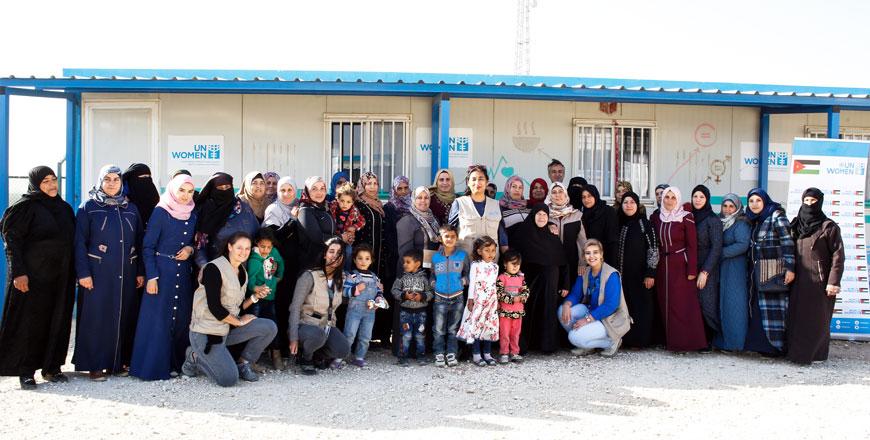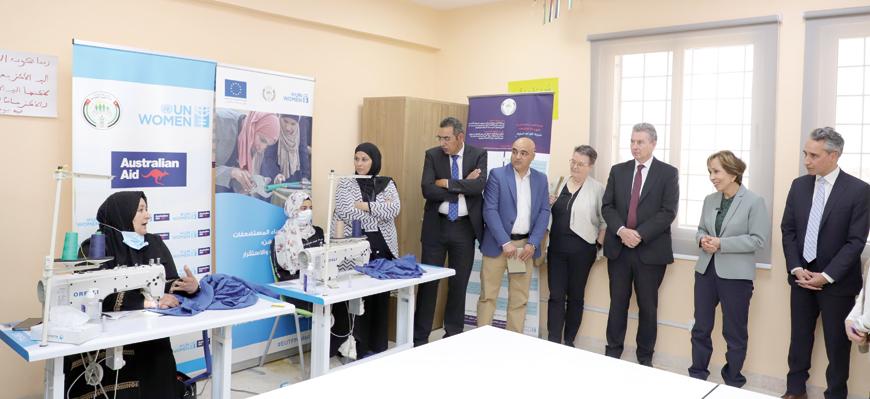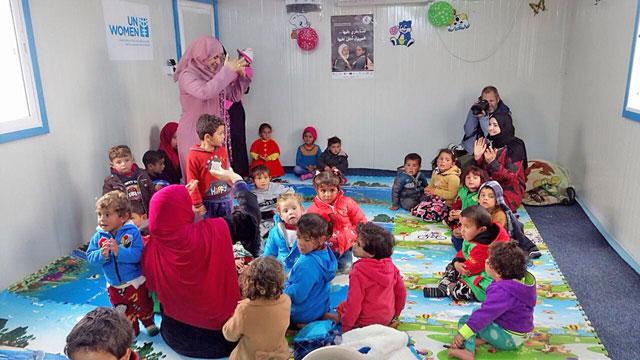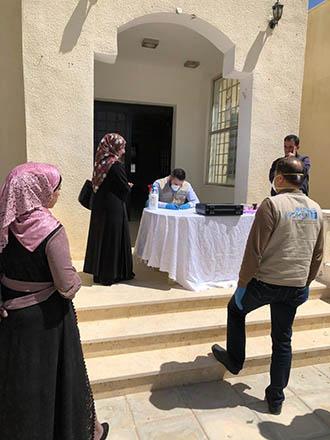You are here
Oasis centres seek to support refugee communities through women’s empowerment
By Maram Kayed - Nov 17,2019 - Last updated at Nov 17,2019

Deputy Executive Director of UN Women Anita Bhatia poses for a group photo during her visit to Azraq refugee camp on Sunday (Petra photo)
AMMAN — Deputy Executive Director of UN Women Anita Bhatia visited the Oasis Centre for Women and Girls at Azraq refugee camp on Sunday to converse with Syrian refugee women and learn about the services provided by UN Women through its centres.
The centres provide incentive-based volunteer programmes, livelihoods training and services for those at risk of and surviving gender-based violence, as well as civic engagement and education opportunities.
Helweh, a Syrian refugee, told The Jordan Times that through the centre, she has been able to “support her husband and children”.
“I knew some sewing basics before, but with training from the centre, I was able to become a professional and earn money while doing it, too,” she added.
UN Women currently operates four Oasis Centres in the Zaatari and Azraq refugee camps. In 2019, it also launched eight Oasis centres within Jordan’s host communities in partnership with the Ministry of Social Development (MOSD).
Through the 12 Oases, in both camp and non-camp settings, UN Women and the MOSD reach more than 6,000 Syrian refugee and vulnerable Jordanian women. By extension, the Oases also benefit 50,000 members of the targetted communities. Trainings range from one month to a year, depending on the programme offered.
The Oases provide childcare services, which Fatmeh, another Syrian refugee, said is “essential and very helpful to all the women taking part in the trainings”.
With six hours of work a day and MOSD-monitored hourly pay, UN Women officials said during the visit that the contracts given to the women “abide by all Jordanian Labour laws”.
Bhatia, who is also assistant UN secretary general for resource management, sustainability and partnerships, conveyed to The Jordan Times her hopes for the programmes to “become more sustainable”.
“Integrating these women into the workforce outside the camp would be great, but given that female participation in the Jordanian workforce is already low, it would be even harder for these women,” she added.
Partnerships with the private sector are on UN Womens’ agenda, according to Bhatia.
Earlier in the day, Bhatia also met with Minister of Social Development Basma Ishaqat to discuss joint efforts in empowering the most vulnerable women in Jordan through the Social Protection Strategy and by rolling out the Oasis model country-wide
“As UN Women, we are grateful to the Government of Jordan for continuing to provide a secure environment for all refugees. I was impressed by the stories of resilience and empowerment of the women I met today. With the support of our partners, we are proud to stand by women affected by humanitarian crises,” she said.
Related Articles
AMMAN — HRH Princess Basma, Honorary Goodwill Ambassador for the UN Women and Chairperson of the Jordanian National Committee for Women (JNC
AZRAQ REFUGEE CAMP — The United Nations Entity for Gender Equality and Women Empowerment (UN Women) on Tuesday launched its first “Oasis” sp
AMMAN — The Government of Australia, through the Department of Foreign Affairs and Trade, has extended an additional contribution to UN Wome

















